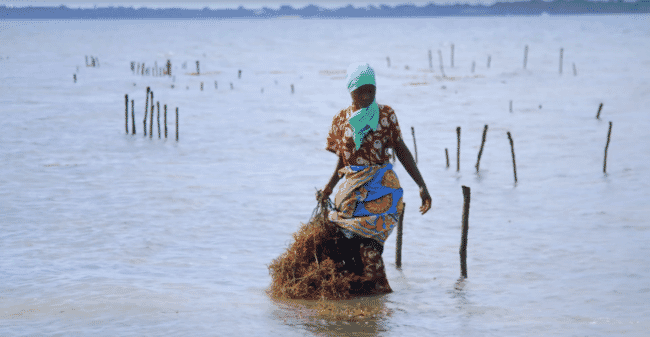
© WorldFish
Millions of viewers, including 300,000 from coastal fishing communities across East Africa and a worldwide audience on YouTube, have tuned in to three special episodes of Shamba Shape Up. Produced in partnership with WorldFish through the Asia–Africa BlueTech Superhighway (AABS) project, the episodes showcase new approaches to seaweed farming, fisheries management and sustainable aquaculture. The three episodes aired and are now available online.
The episodes were broadcast in English and Swahili and showcase practical, low - cost solutions that help smallholders improve aquaculture management, raise incomes and build climate - smart coastal economies.
Episode one focuses on women’s groups on Kenya’s south coast pioneering climate - smart seaweed farming and testing integrated multi-trophic aquaculture. Episode two explores how coastal communities are using GPS trackers, local data collection and solar - powered cold chains to boost safety at sea, combat overfishing, cut fuel costs and keep catches fresh. The final episode details how smallholder innovators are transforming coastal livelihoods through shrimp, fish, crab and sea cucumber polyculture, as well as community - run crab farming. It also highlights how women processors are improving fish preservation with both solar - powered and traditional methods.
“Through Shamba Shape Up, we are putting climate - smart, proven practices directly into fishers’ homes, in their own language, in a format they know and trust,” said Levine Mbelase, AABS project manager in Kenya, in a press release.
The collaboration is part of the Asia–Africa BlueTech Superhighway (AABS), a seven - year project running from 2023 to 2030. The project is implemented by WorldFish and its partners to sustainably transform aquatic food systems in Asia and Africa. Funded by UK International Development under the Blue Planet Fund, AABS aims to leverage South–South collaboration to deliver a "triple win" for nature, people and climate.



